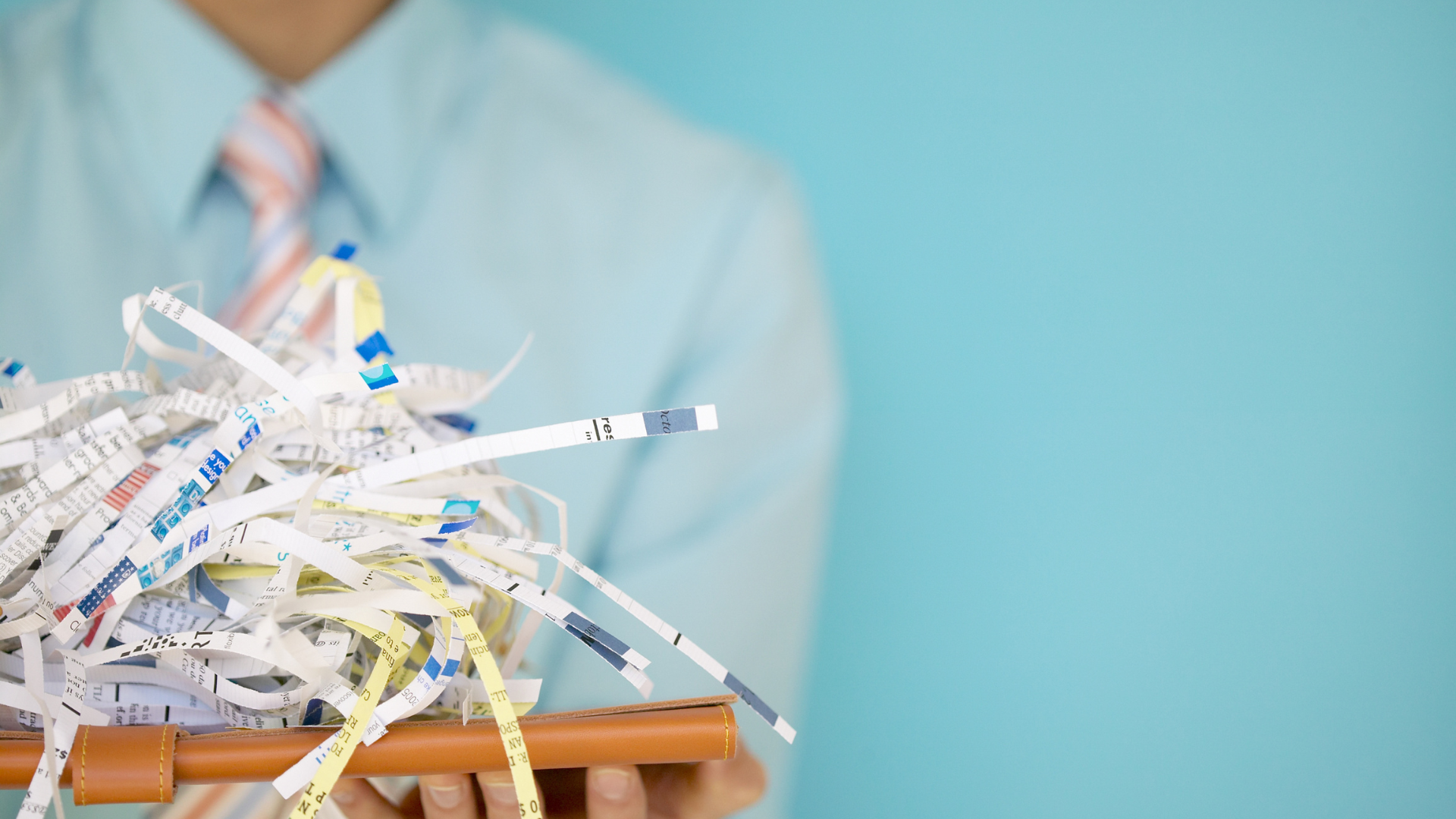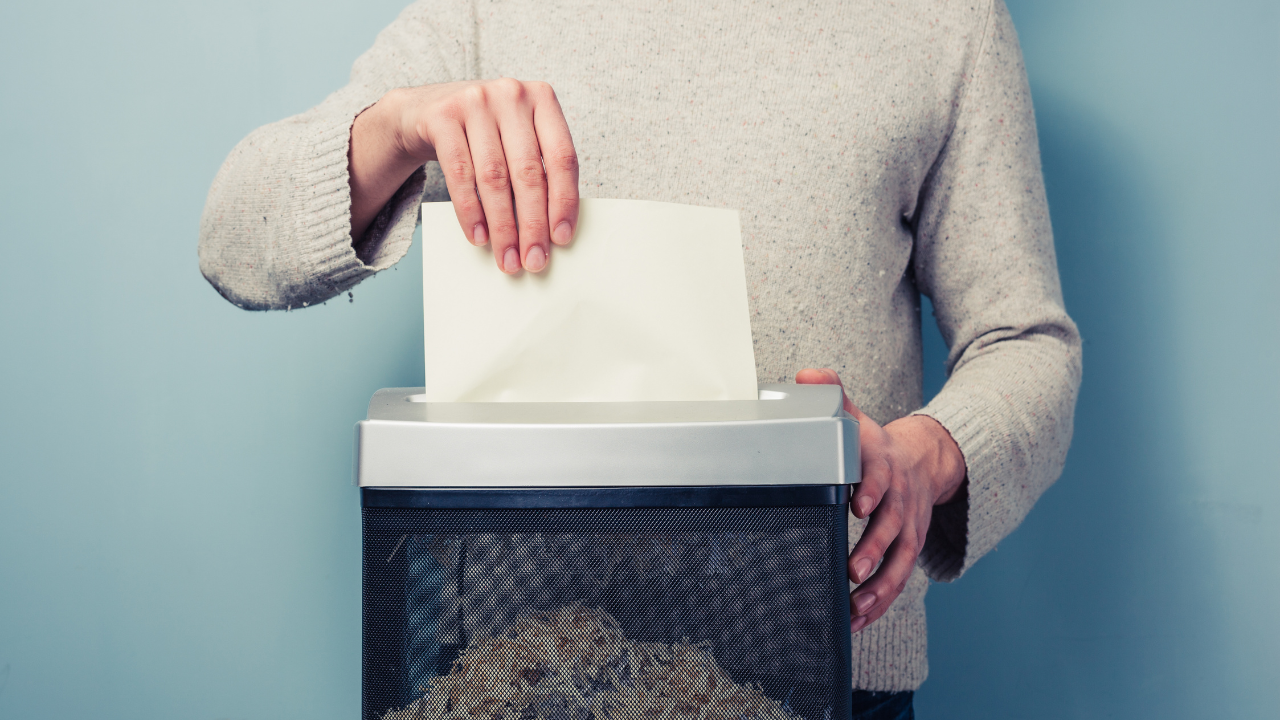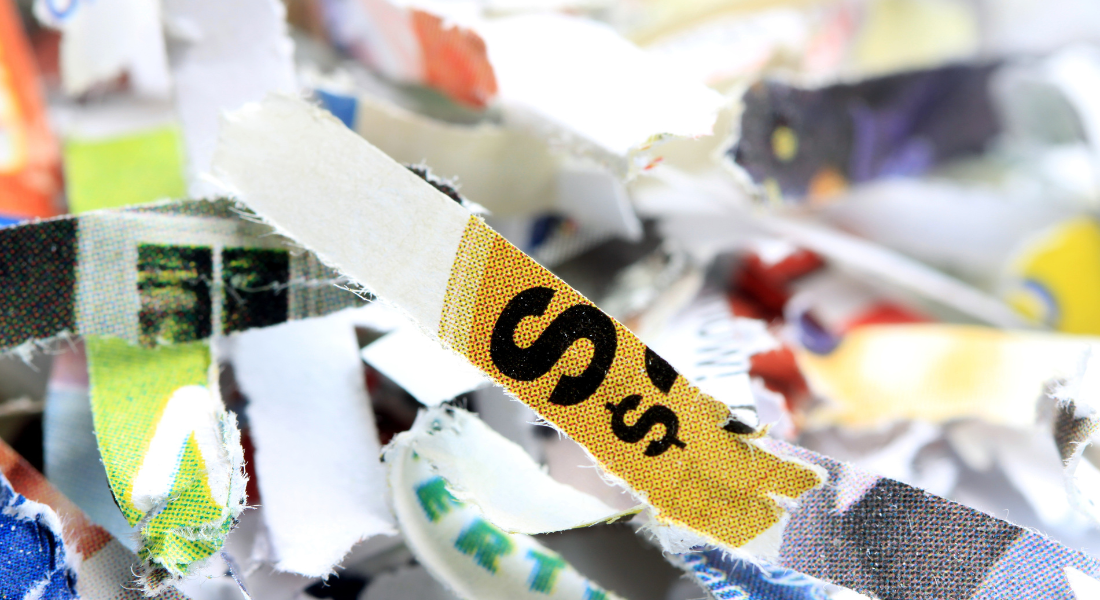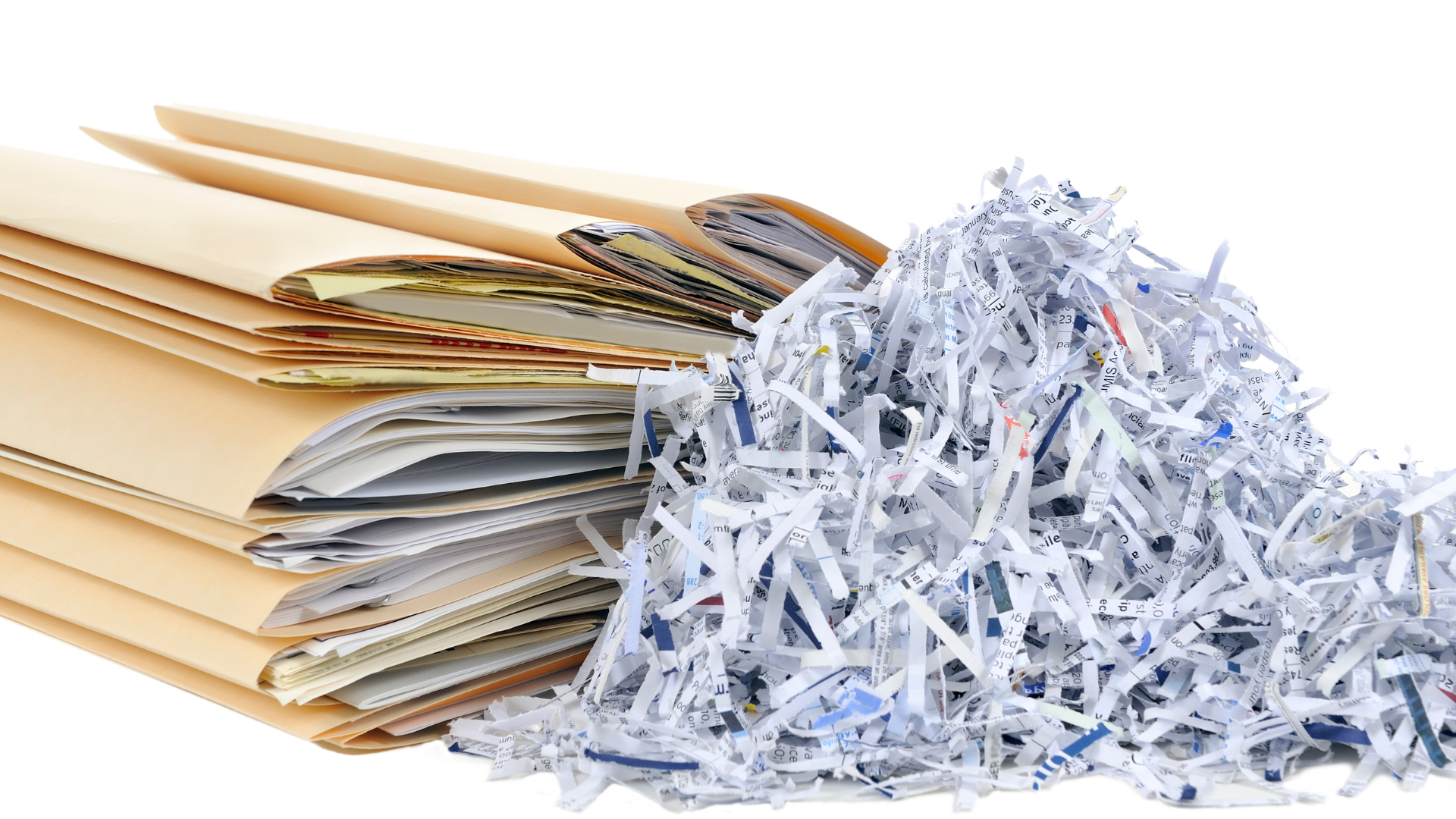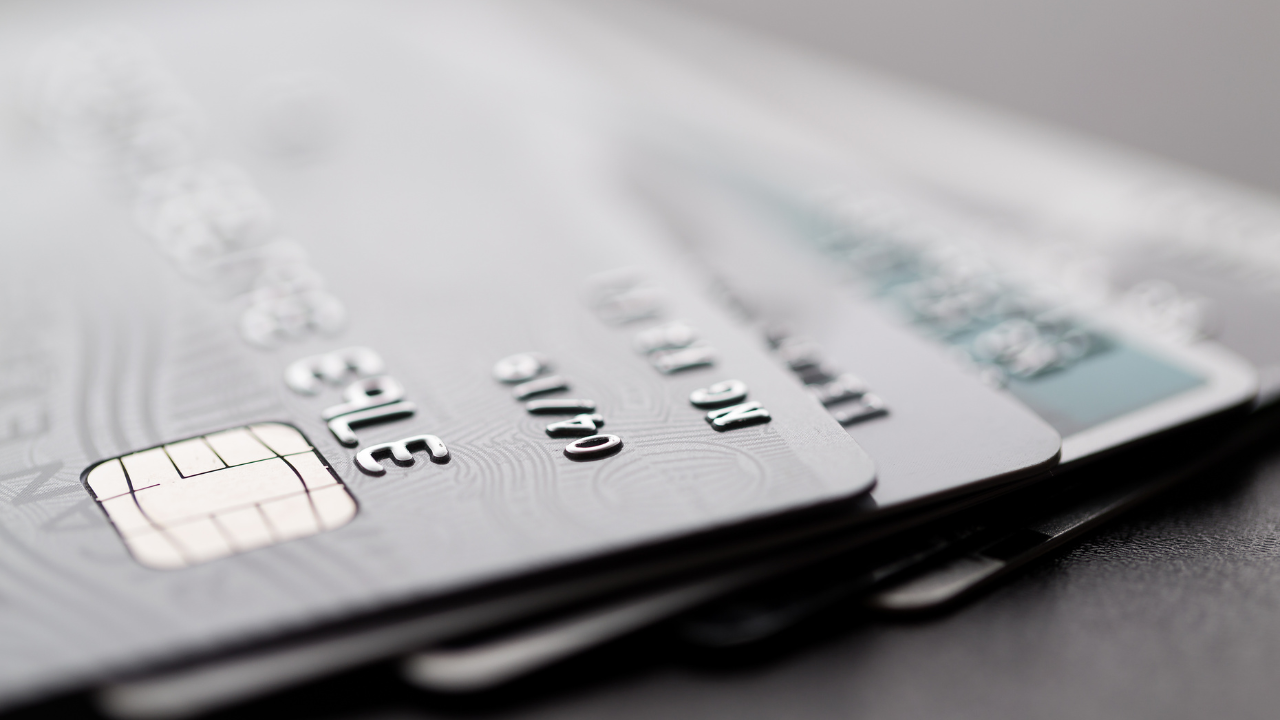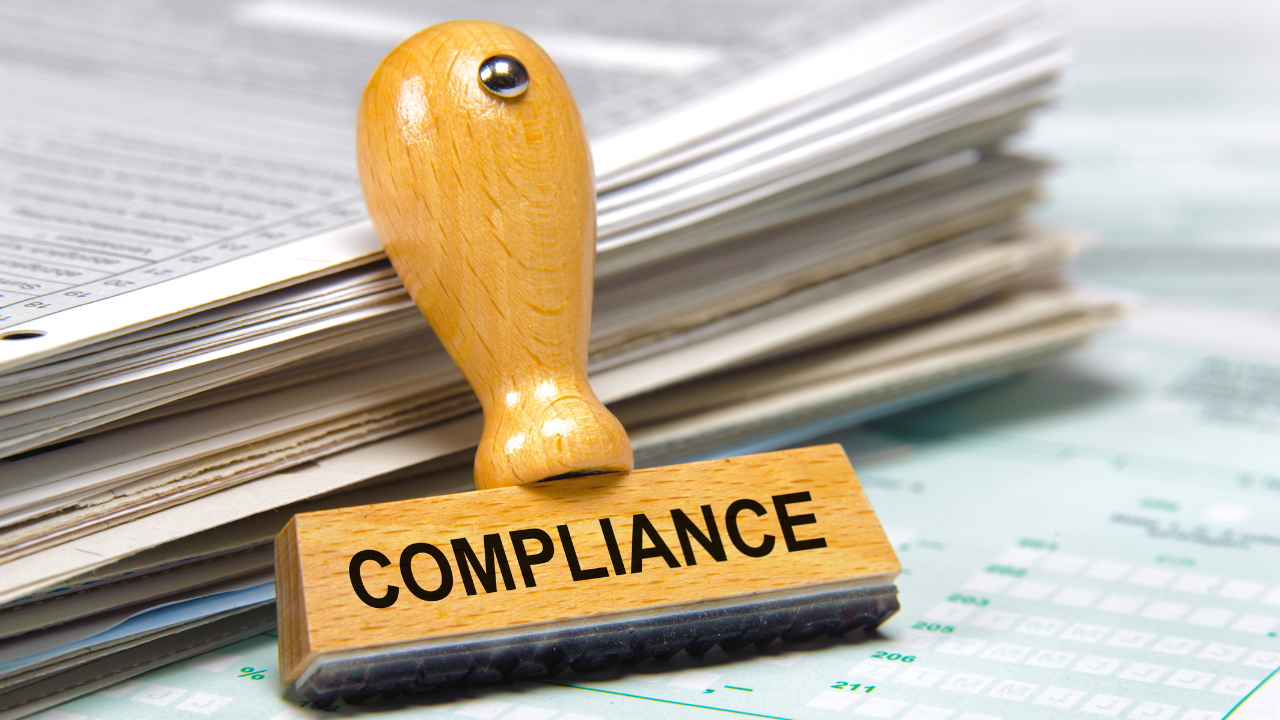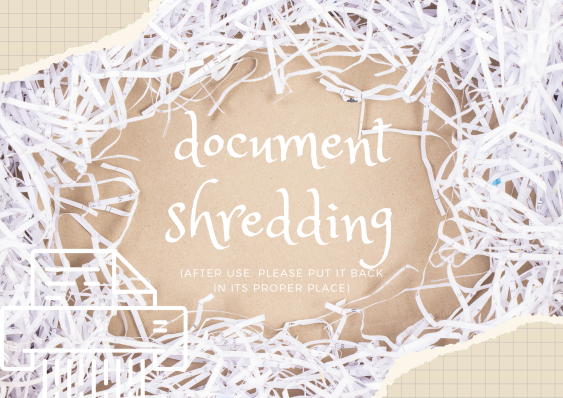What to do with shredded documents
Shredding documents is the process of permanently destroying records that are not needed anymore. When you shred documents, you prevent them from being found again in the future. You cannot unshred documents once they’ve been shredded. Some people believe that shredding a document destroys it forever and there’s nothing left behind to be discovered by others. While this might be true, there are still ways that someone might find your information even after you’ve shredded it.
The most common ways include: Recruiter searching for job candidates
- Follow-up questions from friends and family about where you’re living or what type of work you do
- Check mail when moving into a new residence or selling a home
- Look through old desk drawers
- Sifting through trash cans Shredding is recommended because of these reasons and more: It protects your security and privacy. It helps prevent identity theft.
It makes it harder for potential robbers to get at your valuables or documents when you’re not at home. It makes it more difficult for identity thieves to sell your personal information to other parties who could use it against you in the future.
How to shred a document
Before you get into the nitty-gritty of actually shredding documents, you should understand the general process. There are only a few steps to this process, and they are:
1. Collect paper records
2. Securely store paper records
3. Shred documents
4. Follow up with an audit For this tutorial, let’s say you’ve recently moved into a new house and want to get rid of some of your papers that you don’t need anymore. You can use this example to shred documents in the future to prevent having your identity stolen.
First, collect the papers you want to shred. You can use a box, bag, or basket to hold papers. Next, find a secure way to store your papers, like a shredder cabinet, a locked filing cabinet, or a fireproof box.
After you’ve collected your papers, find a secure shredding location. You can shred documents at home, at a business shredding service, or at a certified and bonded shredding service.
You can shred documents at most any office supply store, and many banks and financial institutions offer shredding, too. When you shred documents, you first tear out the pages and then put them through your shredder. You can also use a paper shredder that attaches to a computer.
What to shred and what not to shred
There are many different things to shred and many different things you should not shred. The most important thing to keep in mind is that you should only shred what you don’t want others to see. The things you should not shred include:
-Copies of financial records
-Copies of passwords to online accounts
-Copies of divorce documents
-Copies of divorce decrees
-Copies of medical records
-Copies of utility bills
-Copies of rental agreements
-Copies of insurance policies
-Copies of passport/immigration documents
-Copies of court documents
-Copies of paychecks
-Copies of tax documents
-Copies of W-2 Form
-Copies of bank statements
-Copies of payroll records
-Copies of credit card statements
-Copies of deeds
Why you need a shredding service
There are a few different ways you can go about shredding your own documents. The first, and most risky, way is to simply put them in a box or bag and take them to the shredding location. You can also take them to a certified and bonded shredding service and let them handle the paper for you.
However, you’re risking someone stealing your papers or papers that are not properly shredded. If you choose to shred your own papers, you must first make sure that you are extremely careful. Shredding papers at home is a great way to accidentally shred important documents. If you don’t have a shredding cabinet, make sure you keep your papers in a locked filing cabinet or fireproof box.
Other ways identity thieves can find information about you
One of the most common ways identity thieves find information about you is directly from your credit report. Credit bureaus regularly maintain a history of your financial activities, including what you spend, where you spend it, what you owe, and when payments are due.
If a thief knows where you live, they may be able to use this information to find out things like your bank account number, the amount you have in your bank account, and the times when you’re likely to be away from your computer and home.
Benefits of shredding your documents
-It makes it harder for identity thieves to find your information.
-It protects your information from hackers and other cybercriminals.
-It protects your information from being read by people without your permission.
-It protects your information from being destroyed by fire.
-It protects your information from being vandalized or torn.
-It prevents your information from being damaged by extreme weather conditions.
-It prevents your information from being contaminated by rodents.
-It prevents your information from being damaged by mice or other small rodents.
-It prevents your information from being destroyed by water.
-It protects your information from being destroyed by earthquakes.
-It protects your information from being destroyed by volcanic eruptions.
-It prevents your information from being destroyed by hurricanes.
-It prevents your information from being destroyed by tornadoes.
-It prevents your information from being destroyed by strong storms and other extreme weather conditions.
-It prevents your information from being destroyed by humidity.
-It prevents your information from being destroyed by sun and heat.
-It prevents your information from being destroyed by freezing temperatures.
Disadvantages of shredding your documents
There are a few reasons why you might not want to shred your documents. First, if you do not have a secure place to store your sensitive information, it may be tempting to throw it in the trash.
However, that is never a good idea. If you do not protect your files with a password or encryption, someone could easily access them.
Second, paper documents are not entirely environmentally friendly. When you create a recycling program at home and bring your shredded papers to the local facility, they can be recycled into new paper products.
However, when documents are taken to a commercial facility for shredding and recycling, they may end up in landfills instead of being reused. In addition, some commercial facilities that recycle paper into new products use chlorine or other chemicals that can damage the environment.
Finally, it is worth mentioning that if you are exposing sensitive health information in your medical records, it is best to keep them stored in a secure location.
Summary: -
Shredding is the process of permanently destroying records that are not needed anymore. When you shred documents, you prevent them from being found again in the future. You cannot unshred documents once they’ve been shredded. Some people believe that shredding a document destroys it forever and there’s nothing left behind to be discovered by others. While this might be true, there are still ways that someone might find your information even after you’ve shredded it.
The most common ways include:
Feel free to use our guide to do-it-yourself shredding, but make sure to keep your door locked when doing so. If you need help shredding, find a certified and bonded shredding service.
If you feel overwhelmed by the task of shredding your sensitive documents, take a deep breath, and consider hiring a professional shredding service. The best option is to contact a local shredding shop, so you can be sure you’ll get the right service for the job. Shredding services offer an affordable option, while helping protect your privacy and identity.
If you need to shred your documents let’s
connect with us.
At I-Shred, security and efficiency are a priority. I-Shred offers stress-free onsite shredding to save time and ensure your documents are destroyed properly. Which is why we offer recurring service to small businesses. We are dedicated to helping you save time and money when it comes to secure document destruction. Contact us today!
